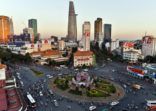The voluntary “third pillar” of the country’s pension system provides “the best avenue for foreign asset managers to access the China pension space directly, instead of receiving mandates”, according to Justin Ong, PWC’s Asia-Pacific Asset and Wealth Management leader.
Ong also believes that mainland pension funds will be allowed to invest in offshore investments, enabling qualifying foreign asset managers a competitive advantage in offering diversified, international investment products.
The third pillar supplements provincial schemes tied to the household registration system (hukou) and the National Social Security Fund that exists to plug shortfalls in the provincial schemes.
The China Securities Regulatory Commission (CSRC) accelerated the country’s reform of its voluntary private pension sector last March by allowing fund of funds to be structured as target-date and target-risk funds. These comprise a mixture of stocks and bonds that adjusts over time as the age and risk tolerance of retirement planners shifts.
In August, the CSRC awarded licenses to 14 domestic asset managers, designated “fund management companies” (FMCs), including Harvest, Bosera and China Southern to manage target pension products.
The combined assets under management held by the FMCs amounted to RMB1.62trn ($23.9bn) in September 2018, according to the recent PWC report “Asset and Wealth Management 2025: The Asia Awakening”. The authors expect that “given the enacted reforms and scope for future reform, this number should grow substantially in coming years”.
The report also predicts that Shanghai will soon join Singapore and Hong Kong as a regional asset management hub. It predicts that Asia Pacific assets under management will grow at a compound annual growth rate of 8.7%, to $16.7trn in 2020 from $15.1trn in 2017.
By 2025, the firm expects AUM in the region to nearly double to $29.6trn.
It further estimates that assets held by regional mutual funds, including exchange traded funds, should double to $11.9trn by 2025.

















